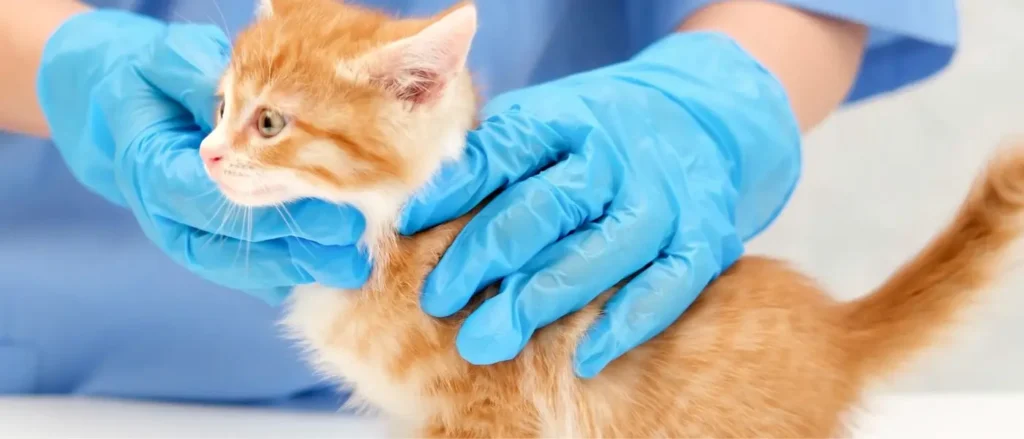What is distemper in puppies?
Canine distemper virus in puppies is a serious disease that can affect dogs of all ages, especially puppies. It’s highly contagious and can be life-threatening—but the good news is, it’s preventable with proper vaccination.
In this article, we’ll explain what distemper is, how it spreads, what signs to look for, and how you can protect your dog.
What causes distemper in puppies?
Canine distemper is a viral disease that affects a dog’s respiratory system (lungs), digestive system (stomach and intestines), and nervous system (brain and spinal cord). It’s caused by the canine distemper virus, which is similar to the virus that causes measles in people.
It spreads easily and can be especially dangerous for puppies or dogs who haven’t been vaccinated.
How do puppies catch distemper?
Dogs catch distemper from other infected animals – often through coughing, sneezing, or sharing food and water bowls. The virus can also be found in a sick dog’s saliva, urine, or eye discharge. Even if a dog doesn’t seem very sick yet, it can still spread the virus to others.
Rescue centres, dog parks, grooming salons, and boarding facilities can be high-risk places if a dog is not up to date on their shots.
Watching out for canine distemper symptoms in puppies
Canine distemper symptoms in puppies can vary massively and in stages. Early on, you might notice:
- Fever
- Watery eyes or eye discharge
- Runny nose
- Coughing or sneezing
- Tiredness or low energy
- Loss of appetite
Distemper virus in puppies can cause the following symptoms as it worsens:
- Vomiting and diarrhea
- Trouble breathing
- Thickened paw pads (sometimes called “hard pad disease”)
In more serious cases, distemper can affect the brain and nerves, leading to:
- Muscle twitches
- Seizures
- Head tilts or walking in circles
- Balance problems
- Behaviour changes (confusion or aggression)
Some dogs recover from the early symptoms but later develop permanent neurological problems.
How can distemper in puppies be treated?
Unfortunately, there’s no specific cure for distemper in puppies. But if caught early, supportive care can help. This may include:
- IV fluids to prevent dehydration
- Medication to control vomiting or diarrhea
- Antibiotics to fight secondary infections
- Anti-seizure meds if neurological symptoms appear
Some dogs recover, but others may suffer long-term effects – or may not survive. This is why prevention is so important.
Your best defence is our distemper puppy vaccine
The distemper puppy vaccine is part of your dog’s core vaccines, usually given in a combination vaccine (often listed as DHP). Puppies typically start their vaccine series around 8 weeks old, with a booster at 12 weeks.
After that, your dog will need regular booster vaccinations —usually every 1 to 3 years.
Make sure your dog is vaccinated before visiting places where they’ll be around other dogs, like parks, daycares, or boarding kennels.
Keep unvaccinated puppies inside
Vaccination is the cornerstone of distemper prevention. Puppies should begin their vaccination series at 8 weeks of age.
Avoid exposing young or unvaccinated dogs to environments where the virus may be present, such as dog parks, rescue centres, or pet stores.
Why early vet visits matter
Canine distemper in puppies is a devastating but preventable disease. Through client education, routine vaccination, and early veterinary intervention, we can significantly reduce the risk and impact of this viral infection. It is very important to stay up to date on your pet’s vaccines and seek veterinary care at the first sign of illness.
Worried about canine distemper or want to book your puppy’s first health check?
Canine distemper is a scary disease, but it’s one we can protect our pets from. Staying up to date on vaccinations, avoiding contact with sick or unvaccinated animals, and recognizing the signs early can all help keep your dog safe.
If you have questions about your dog’s vaccine schedule or if you’re concerned about any symptoms, don’t hesitate to reach out to your veterinary team, here at Beehive Vets. We’re here to help keep your best friend happy and healthy!






